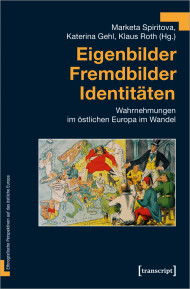Collective 'uprooting', 'sick' villages and a new rural generation: Symbolic distinctions of Lifestyle migrants in the Czech borderlands. The paper adds to the debate on rural transformation and social differentiation through privileged mobility and migration. Using lifestyle migration as theoretical frame, I explore the self-perception and symbolic distinctions of Czech academics, who have moved partly or fully from urban areas to a peripherialized region in the rural Bohemian borderlands. Their relocation is motivated by the expectation to find self-fulfilment, meaning and a desired lifestyle through spatial mobility, but also increases their agency and identity as active citizens. Both cases, which I explore here exemplarily, indicate, that in order to negotiate their experiences at their new place of residence, the lifestyle migrants draw on social imaginations of rural spaces, on the ideal of participation and on alleged long-term moral consequences of the resettlement of the region after the eviction of the German population in the aftermaths of World War II. The intertwining of these interpretational frames produces processes of othering, increases the group identity of the lifestyle migrants and legitimizes their claim to local leadership.
Chapter in monograph
Anja Decker. 2020. „Kollektive 'Entwurzelung', 'kranke' Dörfer und eine neue ländliche Generation. Symbolische Distinktionspraxen von Lifestyle MigrantInnen im tschechischen Grenzland.“ Pp. 125-142, Spiritova, Marketa/ Katerina Gehl/ Klaus Roth (ed.) . Eigenbilder – Fremdbilder – Identitäten. Wahrnehmungen im östlichen Europa im Wandel . Bielefeld: transcript. 318. ISBN 978-3-8376-4962-8.
Authors:
Department:
Topics:
kultura
urban and rural studies
migration and mobility
social inequalities
lifestyle


Newsletter
Facebook
X
Tweets by SociologickyNewsletter